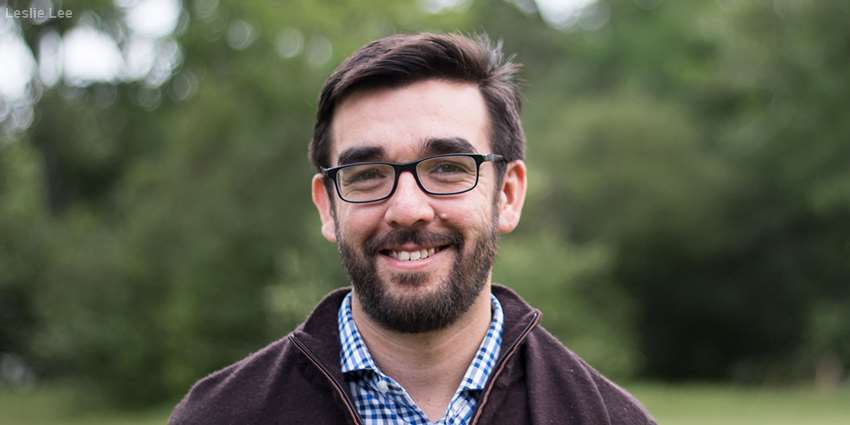Growing up in eastern North Carolina, Michael Schramm spent most of his youth surfing, fishing and exploring the rugged Atlantic coast. The barrier island beaches not only influenced his childhood activities but also helped develop his professional interests.
Now a Texas Water Resources Institute (TWRI) research associate, Schramm joined TWRI in May 2016 to apply his longtime interest in water research. His primary focus is facilitating watershed planning, assessment and protection, and working with stakeholders and policymakers to address water-related issues in Texas.
“I became interested in issues of water quality, fish and environmental health in general because I was always in and around it,” he said, reflecting on his early years on the coast. “All of that revolved around water.”
Schramm pursued his love for the outdoors academically, receiving two bachelor’s degrees from the University of North Carolina Wilmington: environmental studies and biology. He went on to earn his master of energy and environmental policy degree at the University of Delaware.
His academic experience helped expose him to new opportunities in fisheries, biology and conservation, landing him an internship with the North Carolina Division of Environmental Quality. There Schramm learned skills such as water sampling that further expanded his water research know-how.
After graduate school, he secured a two-year fellowship at Oak Ridge National Laboratory, where he researched environmental impacts related to hydropower development and refined his skills in data modeling and statistical analysis.
At TWRI, Schramm helps communicate environmental data and information to watershed stakeholders.
“My main focus has been addressing bacteria and water quality issues along the Matagorda Basin watersheds, as well as the Mission and Aransas rivers,” he said. “We’re working with stakeholders in those areas and incorporating their needs and interests in these watershed plans, identifying possible causes of impairment, and the most likely method to address some of these nonpoint pollutant sources.”
Much of his work involves facilitating discussions about water quality issues and concerns.
“One of the areas that I am most interested in is finding the best ways to engage and communicate sometimes complicated issues to stakeholders in a way that keeps them interested,” he said. “The big thing is making sure they’re involved in the decision-making processes, giving them a reason to want to care or understand the data, and have some ownership in the process.”
Although he finds his work rewarding, Schramm said implementing best management practices can be a long and challenging process.
“The tough part is realizing solutions don’t solve the problem immediately,” he said. “You have to have a long-run picture of it.”
Schramm said he looks forward to becoming more involved with local and regional planning for water and energy sustainability.
For more information on Schramm, visit his TWRI staff page.

